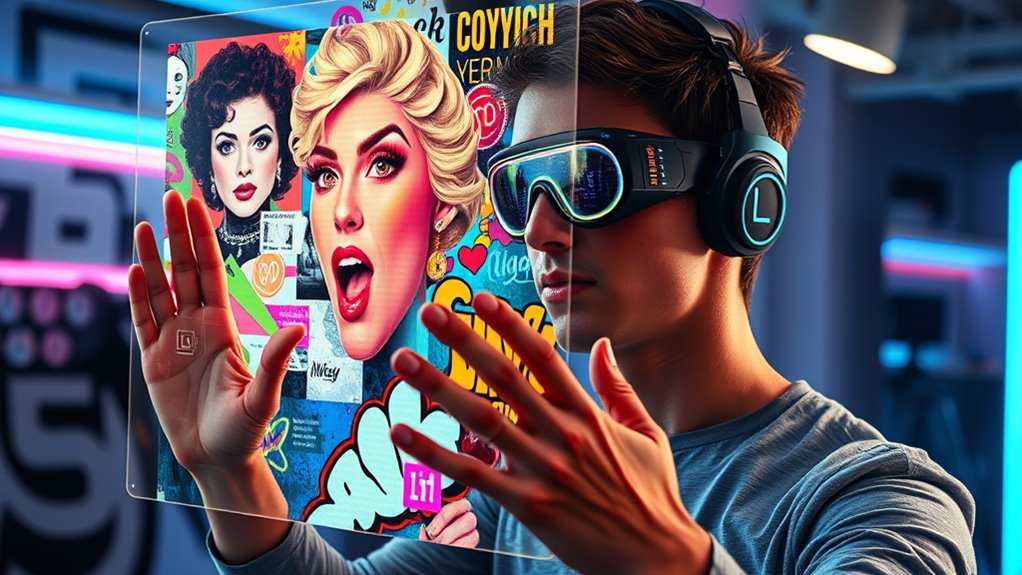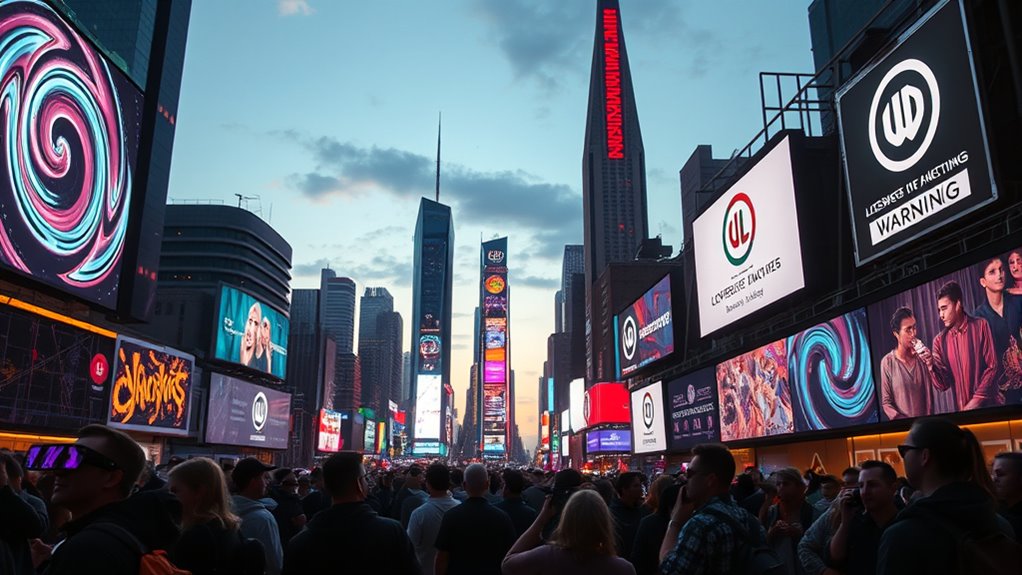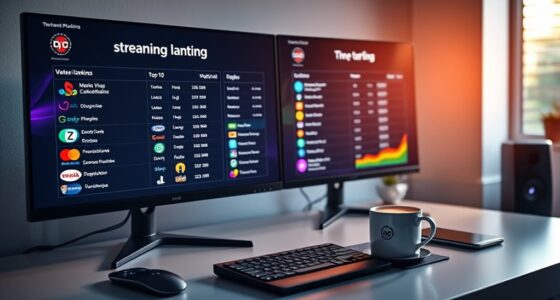In 2025, remix culture faces continued copyright hurdles, with legal uncertainties making it risky to reuse or modify existing content. Fair use remains ambiguous, and licensing models are slow to adapt, discouraging experimentation. Additionally, technological and cybersecurity concerns add more barriers for creators. These issues limit your creative freedom and push you toward caution. To navigate these obstacles effectively, understanding the evolving legal landscape is essential—if you want to discover how to move forward confidently.
Key Takeaways
- Ambiguity in fair use standards continues to hinder remixers’ confidence and legal protection.
- Slow legal reforms leave remix creators in a gray area, limiting innovation and experimentation.
- Complex licensing processes remain costly and time-consuming, discouraging remix projects.
- Cybersecurity risks associated with licensing platforms pose additional threats to digital assets.
- Ongoing legal and technological uncertainties restrict the full development of remix culture in 2025.

As remix culture continues to thrive in 2025, copyright laws are struggling to keep pace with how creators repurpose and share content. You’re part of a vibrant community that thrives on taking existing works—music, videos, images—and transforming them into something new. However, navigating the legal landscape can feel like walking a tightrope, especially when it comes to fair use and licensing models. Fair use remains a key concept, offering some flexibility for creators to incorporate copyrighted material without permission, but its boundaries are increasingly blurred. Courts often evaluate factors like purpose, nature, amount used, and market effect, yet in remix culture, these lines are constantly shifting. You might remix a song for a parody or create a mashup that comments on society, but you risk legal action if the courts decide your work crosses the line. This uncertainty discourages experimentation and makes you cautious about how far you push creative boundaries.
On the other hand, licensing models are evolving but still haven’t fully caught up with the needs of remix artists. Traditional licensing processes can be time-consuming and costly, making it difficult for creators to obtain clear permissions for sampling or remixing copyrighted works. Some platforms have attempted to simplify this with licensing pools or blanket licenses, but these solutions often don’t cover the specific nuances of remix culture. As a result, you may find yourself hesitant to incorporate certain materials, fearing legal repercussions or licensing fees that could eat into your creative process. The complexity of licensing also means that some creators simply avoid legal hurdles by sticking to original or public domain content, but this limits your creative palette. In 2025, the gap between copyright law and remix culture remains a significant hurdle, forcing you to weigh the risks of fair use against the potential costs of licensing. Additionally, cybersecurity vulnerabilities during the implementation of new licensing systems could pose risks to creators’ data and intellectual property.
While some legal reforms have been proposed to better accommodate remix practices, they haven’t yet been widely implemented. You’re left in a gray area where the law isn’t entirely clear, and the risk of infringement hangs over many projects. This ongoing tension impacts not just individual creators but the broader cultural landscape, slowing innovation and limiting the ways you can express yourself. As remix culture continues to evolve rapidly, copyright laws and licensing models need to adapt more swiftly to support your creativity without exposing you to unnecessary legal danger. Until then, you must stay informed, tread carefully, and understand how fair use and licensing models shape your ability to remix freely in 2025.
Frequently Asked Questions
How Will Ai-Generated Remixes Impact Copyright Laws in 2025?
You’ll find that AI-generated remixes will challenge existing copyright laws by blurring the lines of authorship and ownership. AI copyright raises questions about who holds rights—the creator or the machine? Remix licensing will likely evolve to address these issues, possibly requiring new agreements for AI-assisted works. As a result, you may see stricter regulations or more flexible licensing models to accommodate AI’s role in remix culture by 2025.
What Rights Do Original Creators Retain Over Derivative Remix Works?
You retain certain authorship rights and creative ownership over derivative remix works, but these rights can be limited by the original creator’s rights and applicable laws. When you remix, you must respect the original creator’s intellectual property, though fair use or licensing may grant you some freedom. Ultimately, the balance of rights depends on current copyright laws, which aim to protect original authors while encouraging creative innovation through remix culture.
How Can Remix Artists Legally Monetize Their Creations in 2025?
You can legally monetize your remix creations in 2025 by securing sampling rights through licensing agreements with original rights holders. Additionally, you should understand and negotiate royalty structures that fairly compensate both you and the original creators. By actively obtaining necessary permissions and establishing clear royalty arrangements, you guarantee your work remains compliant and profitable, allowing you to thrive within remix culture while respecting copyright laws.
Will International Copyright Treaties Adapt to Remix Culture Changes?
Imagine a river constantly flowing, reshaping the landscape—this is how remix culture evolves. International copyright treaties will likely adapt, like a river forging new pathways, to reflect this change. They may expand fair use exceptions, allowing artists to remix freely, while safeguarding against cultural appropriation. This ongoing dance guarantees creativity flows unimpeded, balancing respect for original works with the vibrant pulse of remix culture’s growth.
How Will Copyright Enforcement Online Evolve for Remix Content?
You’ll see online copyright enforcement for remix content becoming more sophisticated, integrating tools like digital watermarking to identify original works easily. Creators and platforms will increasingly rely on Creative Commons licenses to clarify usage rights, encouraging remixing while respecting copyright. Enforcement efforts will focus on balancing protection with fair use, making it easier to detect infringements without stifling creativity, fostering a more open and innovative remix culture online.
Conclusion
As you navigate the evolving landscape of remix culture in 2025, you’ll find that copyright challenges are more complex than ever, threatening to stifle creativity and free expression. The battle to balance protecting original works while fostering innovation is like trying to tame a wildfire—intensely difficult yet essential. Staying informed and advocating for fair use policies will be your best tools in ensuring that remix culture continues to thrive and inspire future generations.









